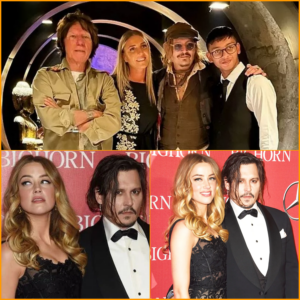Singer had ranted at ‘wet market animal selling, virus making’ people in China in Instagram post
The Canadian singer-songwriter Bryan Adams has apologised after an outburst on Instagram where he attacked “bat eating, wet market animal selling, virus making greedy bastards” in China for the source of the coronavirus outbreak.
The 60-year-old shared an expletive-filled post on Instagram, lamenting how his planned performances in London had been postponed due to the health crisis.
He wrote: “Tonight was supposed to be the beginning of a tenancy of gigs at the royalalberthall, but thanks to some fucking bat eating, wet market animal selling, virus making greedy bastards, the whole world is now on hold, not to mention the thousands that have suffered or died from this virus.

Bryan Adams performing in November 2019. Photograph: Anadolu Agency via Getty Images
“My message to them other than ‘thanks a fucking lot’ is go vegan.”
While the original post remains up on his Instagram page, he has added a new post, in which he apologised to anyone who had taken offence, stopping short of apologising for his own words, and said his intention had been to promote veganism.
“Apologies to any and all that took offence to my posting yesterday. No excuse, I just wanted to have a rant about the horrible animal cruelty in these wet-markets being the possible source of the virus, and promote veganism.
“I have love for all people and my thoughts are with everyone dealing with this pandemic around the world.”
Adams paired his post with a performance of the song Into the Fire.
His earlier comments conflated a series of theories about the origin of coronavirus in China, namely that it stemmed from meat sold in a wet market in Wuhan, and also that it was man-made in a laboratory there.
He sparked a major online backlash, and trended on Twitter; US actor and writer Cindy Chu was among his critics, describing him as “super super racist”.
There was also extensive praise for him from those who find credence in his theories, though there is no consensus around the virus’s origins, even its basis in Wuhan.
I hope you appreciated this article. Before you move on, I was hoping you would consider taking the step of supporting the Guardian’s journalism.
From Elon Musk to Rupert Murdoch, a small number of billionaire owners have a powerful hold on so much of the information that reaches the public about what’s happening in the world.
The Guardian is different. We have no billionaire owner or shareholders to consider. Our journalism is produced to serve the public interest – not profit motives.
And we avoid the trap that befalls much US media – the tendency, born of a desire to please all sides, to engage in false equivalence in the name of neutrality.
While fairness guides everything we do, we know there is a right and a wrong position in the fight against racism and for reproductive justice.
When we report on issues like the climate crisis, we’re not afraid to name who is responsible.
And as a global news organization, we’re able to provide a fresh, outsider perspective on US politics – one so often missing from the insular American media bubble.
Around the world, readers can access the Guardian’s paywall-free journalism because of our unique reader-supported model.
That’s because of people like you. Our readers keep us independent, beholden to no outside influence and accessible to everyone – whether they can afford to pay for news, or not.
News
What you didn’t know about Johnny Depp’s guitar skills.
Beyond the silver screen and the allure of Hollywood’s glitz and glamor lies a lesser-known facet of Johnny Depp’s life – his profound passion for playing the…
The subtle clues Johnny Depp gave us about AH’s true nature
Times Johnny Depp Tried To Warn Us Johnny Depp is a man who has had a very interesting life in ways that are both funny, and sad….
The controversial poster of pirates of the Caribbean 6 starring Johnny Depp
There is a new Pirates of the Caribbean 6 poster that has gone viral online with a movie title listed as Pirates of the Caribbean: Demons of the Corsair. The…
Johnny Depp celebrates Amber Heard victory with £50K Indian banquet
‘Once in a lifetime moment’ at the Varanasi in Broad Street, Birmingham Hollywood star Johnny Depp was joined by his musician friend Jeff Beck, 77, and around…
Johnny Depp’s ‘favourite’ curry house Varanasi about to open in Leicester
Johnny Depp who is reported to have said ‘it was the best curry he’s ever had!’ Varanasi, a popular Indian restaurant is expanding from it Birmingham branch,…
How Johnny Depp and Rod Stewart showed their love for animals with a song
Johnny Depp and Sir Rod Stewart joined forces over the weekend to raise money for an animal charity based in Lewisham. The duo performed at a private charity…
End of content
No more pages to load











